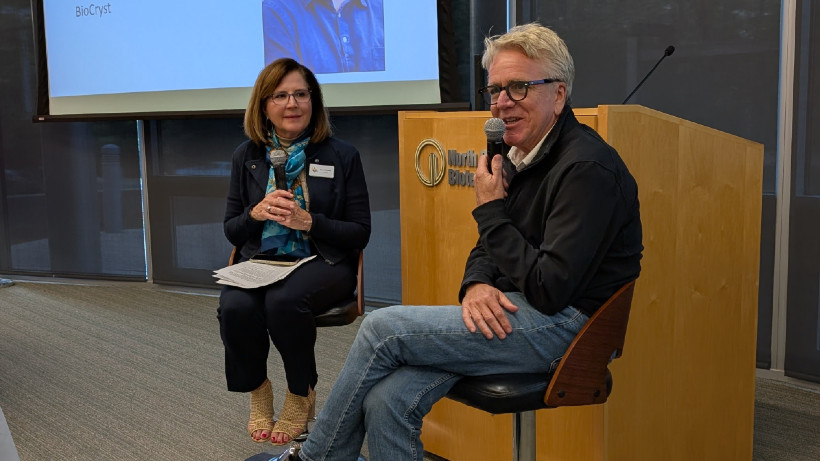2025 Annual Dinner: BioCryst CEO Jon Stonehouse on building a biotech success story

BioCryst Pharmaceuticals CEO Jon Stonehouse said his nearly 19-year tenure leading the rare disease biotech company has been marked by multiple "near-death experiences" that ultimately forged a resilient culture capable of generating $600 million in annual revenue.
Speaking at the NCLifeSci Annual Dinner Sept. 15 at the NC Biotechnology Center, Stonehouse reflected on the company's evolution from a struggling startup to a profitable enterprise ahead of his retirement in December.
The 65-year-old executive joined BioCryst in 2007 when the company had about five employees working above a coffee shop in Cary. The Research Triangle Park-based company now employs hundreds and manufactures Orladeyo, the only oral medication approved for preventing hereditary angioedema attacks.
The 2025 NCLifeSci Annual Dinner was sponsored by Avantor, EisnerAmper, HIPP Design + Consulting and JLL.
